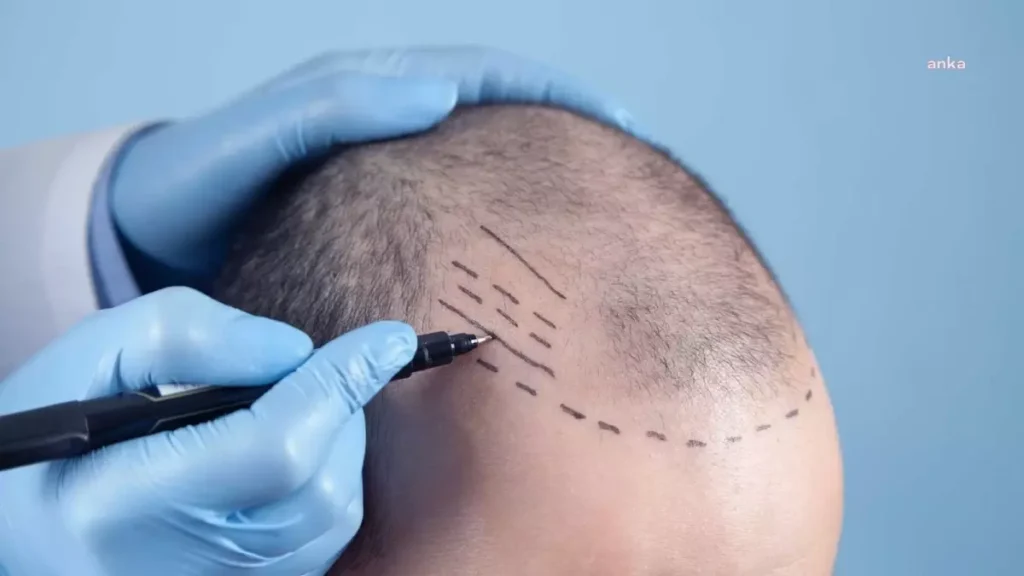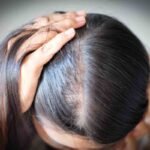Hair loss is a significant concern for many people, affecting self-esteem and confidence. Whether it's genetic, stress-related, or due to other factors, finding a solution that works is often difficult. The Hair Loss Bible is here to guide you through understanding hair loss, exploring effective treatments, and providing expert-backed recovery advice to restore your hair …
Hair loss is a significant concern for many people, affecting self-esteem and confidence. Whether it’s genetic, stress-related, or due to other factors, finding a solution that works is often difficult.
The Hair Loss Bible is here to guide you through understanding hair loss, exploring effective treatments, and providing expert-backed recovery advice to restore your hair and confidence. In this comprehensive guide, you will learn the best treatments for hair loss, how to recover after a transplant, and how to prevent further loss.

Understanding Hair Loss: What You Need to Know
Hair loss affects millions globally, and understanding its causes is the first step toward finding the right treatment. Let’s explore the most common types of hair loss and their causes.
Types of Hair Loss
Hair loss manifests in various forms, and recognizing the type helps in choosing the most effective solution.
- Androgenetic Alopecia: Also known as male and female pattern baldness, this is the most common form of hair loss and is primarily genetic.
- Telogen Effluvium: A temporary form of hair loss triggered by stress, illness, or pregnancy, where hair falls out more quickly than it grows.
- Alopecia Areata: An autoimmune condition causing patchy hair loss, often starting with small bald spots on the scalp or other areas.
Common Causes of Hair Loss
Several factors contribute to hair loss, and it’s important to understand what may be affecting you.
- Genetics and Hormonal Changes: Both genetics and hormonal fluctuations, such as those from pregnancy or menopause, can impact hair health.
- Lifestyle Factors: Stress, poor diet, and insufficient sleep can cause or exacerbate hair loss.
- Medical Conditions and Medications: Conditions like thyroid issues or certain medications may contribute to hair shedding.
The Hair Loss Bible: Treatments and Solutions
The Hair Loss Bible wouldn’t be complete without exploring the best treatments available. Whether you’re looking for topical solutions, surgery, or natural remedies, the following treatments have shown effectiveness in combating hair loss.
Topical Treatments for Hair Loss
Two primary over-the-counter options for hair loss treatment include:
- Minoxidil (Rogaine): Minoxidil is a topical treatment that helps regrow hair by stimulating hair follicles. It’s FDA-approved and can be used by both men and women.
- Finasteride: Available as an oral medication, finasteride prevents the conversion of testosterone into dihydrotestosterone (DHT), the hormone that contributes to hair loss in men.
Hair Transplantation: A Permanent Solution
If you’re looking for a long-term solution, a hair transplant may be your best option.
- FUT vs. FUE: The two main types of hair transplants are Follicular Unit Transplantation (FUT) and Follicular Unit Extraction (FUE). FUT involves removing a strip of scalp to harvest hair follicles, while FUE extracts individual follicles directly from the scalp.
- The Hair Transplant Process: The process involves a detailed consultation, followed by harvesting hair follicles from a donor area and transplanting them to the thinning or balding areas. This procedure can provide permanent results with proper care.
Natural Remedies and Alternative Treatments
While medical treatments like minoxidil and finasteride are popular, many individuals look for natural solutions to support their hair health.
- Essential Oils: Some essential oils, such as rosemary and peppermint oil, have been shown to stimulate hair growth by improving circulation to the scalp.
- Diet and Lifestyle Modifications: A balanced diet rich in vitamins and minerals (such as biotin, iron, and vitamin E) is essential for hair health. Regular exercise and stress management techniques also play crucial roles in maintaining hair health.
Post-Treatment Recovery: What to Expect After Hair Transplants

After a hair transplant, proper recovery is essential to ensure that the transplanted hair follicles take root and thrive. Here’s what you should know.
Why Is Sweating Bad After a Hair Transplant?
Excessive sweating can disrupt the healing process of your transplanted hair follicles. Sweat can carry bacteria, which may cause infections or irritation in the newly transplanted area. It’s essential to keep the scalp clean and dry.
How Long Should I Avoid Sweating After a Hair Transplant?
After a hair transplant, avoid sweating for the first 2–3 weeks to allow the transplanted follicles to properly settle. It’s crucial to keep the scalp protected from excessive moisture, which can interfere with the healing process.
Safe Recovery Timeline and Precautions
The recovery timeline varies from person to person, but here’s a general idea of what to expect:
- Week 1: You’ll experience some swelling and scabbing. Follow post-operative care instructions carefully.
- Week 2-3: Swelling and scabbing should subside. Avoid activities that may cause injury or strain to the scalp.
- Week 4-6: The transplanted follicles begin to settle in, and shedding may occur. Don’t worry; this is a normal part of the process.
- Month 3-6: New hair growth will start to appear. However, full results typically take up to 12 months to be visible.
When Can I Exercise Again After a Hair Transplant?
It’s crucial to avoid intense exercise for at least 2–3 weeks after your hair transplant to prevent sweating and pressure on the scalp. Light activities like walking can resume after a few days, but more vigorous activities should wait.
Expert Recovery Tips
- Follow post-op care: Clean your scalp gently using the prescribed shampoos.
- Sleep with your head elevated: This helps reduce swelling in the first few days after surgery.
- Avoid direct sunlight: Protect your scalp from the sun to prevent irritation or damage to the healing follicles.
Expert Insights on Hair Loss Solutions
For an even deeper understanding, let’s look at expert opinions and clinical studies related to hair restoration.
Medical Studies and Research Behind Hair Loss Treatments
Research continues to evolve, offering new insights into hair restoration. Studies indicate that combining various treatments like PRP (Platelet-Rich Plasma) therapy with hair transplants enhances the healing process and promotes faster regrowth.
FAQs:
What are the best treatments for hair loss?
Minoxidil and finasteride are among the most effective non-surgical treatments. However, for those seeking a permanent solution, hair transplants provide lasting results.
How can I prevent hair loss naturally?
Maintaining a healthy diet, managing stress, and using natural oils like rosemary can help reduce hair thinning.
How long does it take to see results from hair transplant surgery?
It can take 3–12 months to see the full results of a hair transplant. The initial shedding of transplanted hair is normal.
Is hair loss treatment covered by insurance?
Most insurance companies do not cover cosmetic treatments like hair transplants, but it’s worth checking with your provider.
Can hair loss be reversed permanently?
With the right treatments and lifestyle changes, hair loss can be significantly reversed. Hair transplants offer a permanent solution when done correctly.
Conclusion and Next Steps
Taking control of hair loss starts with the right information and guidance. Whether you’re considering non-surgical treatments or exploring a hair transplant, following expert advice and maintaining a proper recovery plan is crucial for long-term success.
Book a consultation with Dr. Uzma Irfan, an ISHRS-certified surgeon in Islamabad today to ensure a smooth and successful recovery after your hair transplant. Don’t let hair loss hold you back—take the first step toward restoring your confidence!





